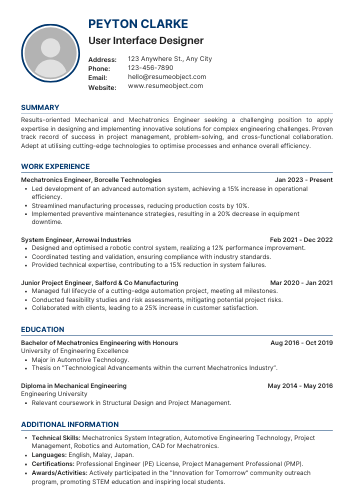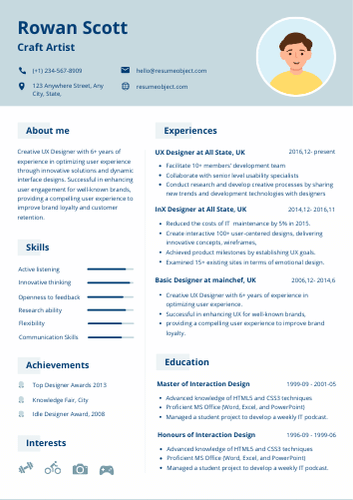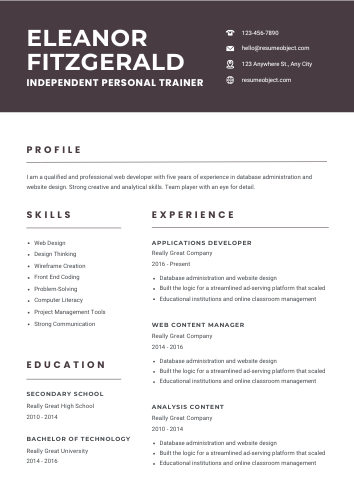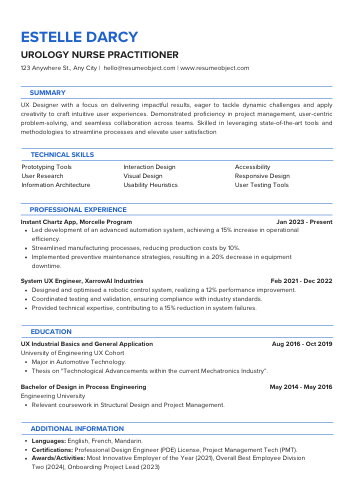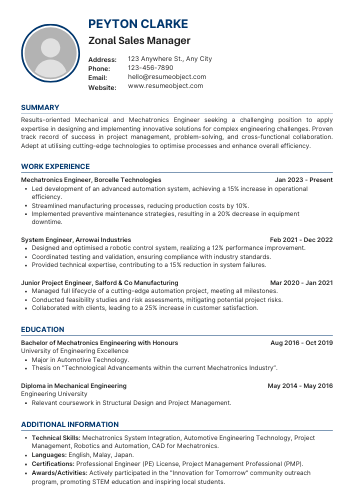32 HVAC Skills for Resume – How to List for HVAC Resume
HVAC Skills on Resume
Stand out with 32 essential HVAC Skills for Resume that hiring managers want. This guide shows how to list technical abilities, certifications, soft skills, and measurable achievements to boost credibility and pass applicant tracking systems. Learn strategic phrasing, prioritization, and examples tailored to service tech, installer, and supervisor roles—so your resume converts interviews and accelerates your HVAC career long term.
Why HVAC Skills Matter for a Resume
Highlighting HVAC skills on your resume demonstrates technical proficiency, problem-solving ability, safety knowledge, and reliability, making you marketable to employers seeking qualified technicians who can install, maintain, and troubleshoot systems efficiently while complying with codes and delivering exceptional customer service.
Highlighting HVAC Skills for Resume shows employers you bring technical competence, safety awareness, and problem-solving under pressure. Clear demonstration of certifications, hands-on experience, and soft skills boosts credibility, improves interview chances, and positions you as a reliable technician ready to reduce downtime and cut costs.
- Technical proficiency: mastery of systems (split, VRF, rooftop), diagnostics, refrigerant handling, and electrical wiring ensures accurate installations and repairs.
- Preventive maintenance: documenting routines, identifying wear, and optimizing system efficiency extends equipment life and lowers client costs.
- Safety & compliance: familiarity with codes, EPA regulations, and safe handling protects workers and preserves company reputation.
- Troubleshooting & problem-solving: quick fault isolation and corrective actions minimize downtime and boost customer satisfaction.
- Communication & teamwork: clear reports, customer explanations, and collaboration with contractors improve project outcomes and repeat business.
- Certifications & training: up-to-date licenses, manufacturer certifications, HVAC software proficiency, and hands-on apprenticeships signal reliability and growth potential for employers.
Boost your portfolio and stand out—discover essential techniques, keywords, and examples in Interior Designer Skills for Resume to land interviews fast and secure higher-paying roles today.
Top 20 Skills for a HVAC Resume
When crafting an HVAC resume, highlighting relevant skills can significantly enhance your chances of landing an interview. Here are the top 20 HVAC skills for your resume:
- Refrigeration Systems
- Air Conditioning Installation
- Heating Systems Maintenance
- Ductwork Design
- Troubleshooting HVAC Equipment
- Electrical Systems Knowledge
- Energy Efficiency Techniques
- Customer Service Skills
- Preventive Maintenance
- HVAC System Design
- Thermodynamics
- Indoor Air Quality Management
- Refrigerant Handling
- Building Automation Systems
- Blueprint Reading
- Safety Protocols
- Problem-Solving Skills
- Time Management
- Team Collaboration
- Technical Documentation
Top Hard Skills for a HVAC Resume
The following top hard skills for HVAC resumes showcase technical expertise, certifications, and hands-on experience employers value, proving competence in installation, maintenance, diagnostics, safety compliance, efficient troubleshooting, and measurable system performance plus energy efficiency optimization.
-
Refrigeration Systems: Knowledge of how refrigeration systems work, including installation and maintenance of various types of cooling systems.
-
Heating Systems: Expertise in different heating methods, including furnaces, heat pumps, and boilers, ensuring efficient operation and repair.
-
Air Conditioning: Proficiency in installing, repairing, and maintaining air conditioning units, focusing on optimizing performance and energy efficiency.
-
Ventilation: Understanding of ventilation systems and their role in maintaining indoor air quality and comfort in residential and commercial buildings.
-
Electrical Systems: Familiarity with electrical components and wiring related to HVAC systems, ensuring safe and effective operations.
-
Ductwork Installation: Skills in designing, installing, and repairing ductwork systems to ensure proper airflow and efficiency.
-
Thermostat Installation: Experience in installing and programming various types of thermostats, including smart and programmable options.
-
HVAC Controls: Knowledge of HVAC control systems, including building automation systems that enhance energy management.
-
Gas Systems: Understanding of gas line installation and maintenance, ensuring safety and compliance with regulations.
-
Troubleshooting: Ability to diagnose and resolve HVAC system issues quickly, minimizing downtime and improving customer satisfaction.
-
Energy Efficiency: Knowledge of energy-efficient practices and technologies, helping clients reduce energy costs and environmental impact.
-
Preventive Maintenance: Skills in performing regular maintenance checks to extend the lifespan of HVAC systems and prevent costly repairs.
-
Safety Protocols: Familiarity with safety regulations and protocols, ensuring compliance and safe working conditions on job sites.
-
Load Calculations: Ability to perform heating and cooling load calculations to determine the appropriate system size for specific applications.
-
Customer Service: Strong communication skills and a customer-focused approach, enhancing client relationships and service satisfaction.
Other Skills for Resumes
Top Soft Skills for a HVAC Resume
Following are the top soft skills for HVAC resumes, essential for demonstrating professionalism, teamwork, communication, problem-solving, and customer service—qualities employers seek to ensure technicians perform reliably, safely, and deliver exceptional service in all field environments.
-
Communication Skills: Essential for effectively conveying technical information to clients and team members, ensuring everyone is on the same page.
-
Problem-Solving Ability: Critical for diagnosing issues quickly and efficiently, allowing for timely and effective solutions in HVAC systems.
-
Teamwork: Important for collaborating with colleagues and other trades, fostering a cooperative work environment that enhances project outcomes.
-
Time Management: Necessary for prioritizing tasks and meeting deadlines, ensuring that projects are completed on schedule.
-
Adaptability: The ability to adjust to new technologies and changing work environments, keeping skills relevant in the evolving HVAC industry.
-
Attention to Detail: Vital for ensuring accuracy in installations and repairs, preventing costly mistakes and ensuring customer satisfaction.
-
Customer Service Orientation: Essential for building rapport with clients, addressing their needs, and providing a positive experience.
-
Technical Aptitude: Important for understanding and working with complex HVAC systems, ensuring effective and efficient service.
-
Safety Awareness: Critical for adhering to safety protocols and regulations, promoting a safe work environment for oneself and others.
-
Leadership Skills: Valuable for taking charge of projects, guiding less experienced team members, and ensuring high-quality work.
How to List HVAC Skills on a Resume
Boost your hiring prospects with a concise guide that teaches recruiters what matters most; learn How to list skills effectively and showcase HVAC Skills for Resume to highlight certifications, troubleshooting abilities and preventative maintenance expertise.
When crafting your resume, showcasing your HVAC skills is crucial for standing out to potential employers. Highlighting your HVAC skills for resume should be done in a clear and organized manner. Use a dedicated skills section to emphasize your technical abilities, certifications, and relevant experiences that align with the job description.
Consider listing your HVAC skills in bullet points for easy readability. Here are some essential HVAC skills to include:
- Proficient in HVAC system installation and maintenance
- Knowledge of refrigeration cycles and controls
- Experience with troubleshooting and repair of HVAC units
- Familiarity with local building codes and safety regulations
- Ability to perform energy audits and efficiency assessments
- Strong customer service and communication skills
- Certification in EPA Section 608 and NATE (if applicable)
By effectively presenting your HVAC skills for resume, you enhance your chances of landing the job you desire.
Resume Example for HVAC with Skills Highlighted
Discover a detailed example showcasing essential skills and qualifications tailored for HVAC professionals. This sample resume highlights key competencies, providing a clear guide to crafting an effective HVAC resume that stands out to employers.
John Doe
1234 Main Street
City, State, Zip
(123) 456-7890
[email protected]
Objective
Detail-oriented and skilled HVAC technician with over 5 years of experience in installation, maintenance, and repair of heating, ventilation, and air conditioning systems. Seeking to leverage my HVAC skills for a rewarding position at XYZ Company.
Professional Experience
HVAC Technician
ABC Heating & Cooling, City, State
January 2018 - Present
- Performed installation, maintenance, and repair of HVAC systems, ensuring optimal performance and customer satisfaction.
- Diagnosed and resolved HVAC system issues, utilizing strong HVAC skills in troubleshooting and problem-solving.
- Conducted routine inspections and preventative maintenance, reducing system failures by 30%.
- Collaborated with team members to enhance service delivery and improve efficiency.
HVAC Installer
Cool Air Solutions, City, State
June 2015 - December 2017
- Installed residential and commercial HVAC systems, demonstrating proficiency in HVAC skills such as ductwork fabrication and refrigerant handling.
- Assisted in the design and layout of HVAC systems to meet client specifications.
- Provided exceptional customer service, ensuring client satisfaction and repeat business.
Education
Associate Degree in HVAC Technology
Technical College, City, State
Graduated: May 2015
Certifications
- EPA Section 608 Certification
- NATE Certified HVAC Technician
Skills
- Proficient in HVAC system installation and repair
- Strong knowledge of electrical and mechanical systems
- Excellent troubleshooting and diagnostic skills
- Familiar with building codes and safety regulations
- Customer service-oriented with strong communication skills
References
Available upon request.
Action Verbs to Pair with HVAC Skills
Action Verbs to Pair with HVAC Skills on a Resume provide dynamic, specific language that highlights technical abilities and achievements; include Action Verbs to Pair with skills and mention HVAC experience to boost resume impact.
- Installed
- Diagnosed
- Repaired
- Maintained
- Optimized
- Calibrated
- Inspected
- Troubleshot
- Upgraded
- Assembled
- Configured
- Monitored
- Enhanced
- Serviced
- Executed
Common Mistakes to Avoid When Listing HVAC Skills
Mistakes to avoid while adding HVAC Skills on a Resume: professionals need concise, accurate entries that reflect experience highlighting HVAC Skills for Resume and avoiding mistakes to avoid while adding skills that could cost interviews
When crafting your resume, especially when highlighting HVAC skills for your resume, it's crucial to avoid common pitfalls that can undermine your chances of landing an interview. Many candidates overlook the importance of tailoring their skills section, which can lead to a lack of relevance in their applications. Here are some must-avoid mistakes that can diminish the impact of your HVAC skills.
- Listing Irrelevant Skills: Including skills that are not directly related to HVAC can dilute your resume’s focus and confuse hiring managers.
- Using Generic Language: Avoid vague phrases like "good with tools." Instead, specify the tools and technologies you are proficient in.
- Neglecting Certifications: Failing to mention relevant certifications can leave out critical qualifications that set you apart from other candidates.
- Overloading with Technical Jargon: While technical terms can demonstrate expertise, excessive jargon may alienate non-technical hiring managers.
- Ignoring Soft Skills: HVAC work often requires teamwork and communication; neglecting to include these soft skills can present an incomplete picture of your abilities.
By steering clear of these mistakes, you can present a more compelling case for your HVAC skills for your resume, increasing your chances of securing that desired position.
Tips for Listing HVAC Skills on Resume
When crafting your resume, highlighting your HVAC skills for resume is crucial to stand out in a competitive job market. Employers look for specific technical abilities and certifications that demonstrate your expertise. Tailoring your skills section to include relevant HVAC competencies can significantly increase your chances of landing an interview.
Here are some essential tips for showcasing your HVAC skills for resume:
- List Relevant Certifications: Include certifications like EPA 608, NATE, or HVAC Excellence to validate your expertise.
- Highlight Technical Skills: Mention proficiency in areas such as refrigeration, heating systems, and air conditioning repair.
- Showcase Soft Skills: Emphasize communication, problem-solving, and customer service abilities that enhance your technical skills.
- Quantify Your Experience: Use numbers to showcase your accomplishments, like the number of systems installed or repaired.
- Tailor to Job Descriptions: Customize your skills section based on the specific requirements listed in the job posting.
By following these tips, you can effectively present your HVAC skills for resume and increase your chances of getting hired.
Do
Do: Tailor skills to the job description - Mirror the exact HVAC terms and technologies listed in the posting (e.g., split systems, VRF, controls) so ATS and hiring managers see relevance immediately.
Do: Use keywords and technical tools - Include specific tools, software, and protocols (e.g., Revit MEP, AutoCAD, BACnet, HVACR diagnostics) to pass automated screening and demonstrate hands-on capability.
Do: Quantify achievements - Add numbers to show impact (e.g., reduced downtime by 30%, serviced 200+ units/year, cut energy costs $15K) to make skills measurable and persuasive.
Do: List certifications and licenses - Prominently show HVAC credentials (EPA 608, NATE, state HVAC license) with issue dates to validate expertise and compliance.
Do: Highlight safety and soft skills - Mention OSHA compliance, troubleshooting, customer communication, and team leadership to show reliability, problem-solving, and customer-facing strengths.
Don't
Don't: Overload your resume with technical jargon - Excessive acronyms and niche terms can confuse hiring managers; use clear language and explain tools/techniques briefly.
Don't: Omit soft skills and safety awareness - HVAC employers value communication, teamwork, troubleshooting, and adherence to safety protocols; include short examples.
Don't: Lie or exaggerate certifications and licenses - Falsified credentials are easily checked and will cost you the job; list valid certifications with issuing body and dates.
Don't: Skip quantifiable achievements - Instead of listing duties, show impact (e.g., reduced callbacks by 30%, completed 200+ service calls annually) to prove competence.
Don't: Forget to tailor skills to the job description - Mirror keywords and prioritize relevant HVAC systems, software, and tools the employer requests to pass ATS and catch attention.
FAQs about HVAC Resume Skills
How many skills should I include on a HVAC resume?
Include 6-8 relevant HVAC skills for resume to showcase your technical expertise and versatility. Focus on key abilities like system installation, maintenance, troubleshooting, and safety compliance to make your resume stand out to employers.
How do I know which skills are most relevant for a HVAC job role?
To identify the most relevant HVAC skills for resume, research the specific job description, industry standards, and required certifications. Highlight technical abilities like system installation, repair, and troubleshooting to match employer expectations and boost your candidacy.
How can I prove the HVAC skills I list on my resume?
You can prove your HVAC skills for resume by showcasing certifications, hands-on experience, completed projects, and positive employer references. Including specific technical tasks and tools you've mastered also strengthens your credibility.
Should I update my HVAC skills section for each job application?
Yes, tailor your HVAC Skills for Resume to match each job application. Highlight relevant skills and certifications that align with the job requirements to increase your chances of standing out to employers and securing an interview.
How to list HVAC skills on a resume?
Highlight relevant HVAC skills for resume by listing technical abilities like system installation, troubleshooting, maintenance, and repair. Include certifications, safety knowledge, and software proficiency to showcase expertise and attract employers in the HVAC industry.

HVAC Skills for Resume
Discover 32 HVAC Skills for Resume: learn how to list technical, soft, and certification skills with examples and action verbs to land more interviews.
Top Hard Skills
Refrigeration system troubleshooting
HVAC system installation
Ductwork fabrication and installation
Electrical controls and wiring
Preventive maintenance and diagnostics
Top Soft Skills
Customer communication and service
Problem-solving and troubleshooting
Time management and punctuality
Teamwork and collaboration
Attention to detail and accuracy
Mistakes to Avoid When Listing Skills
Listing irrelevant skills
Inflating or falsifying certifications
Vague, generic skill descriptions
Tips to List Skills
List certifications and licenses
Include HVAC system types operated
Quantify maintenance achievements with metrics
Free Resume Templates





